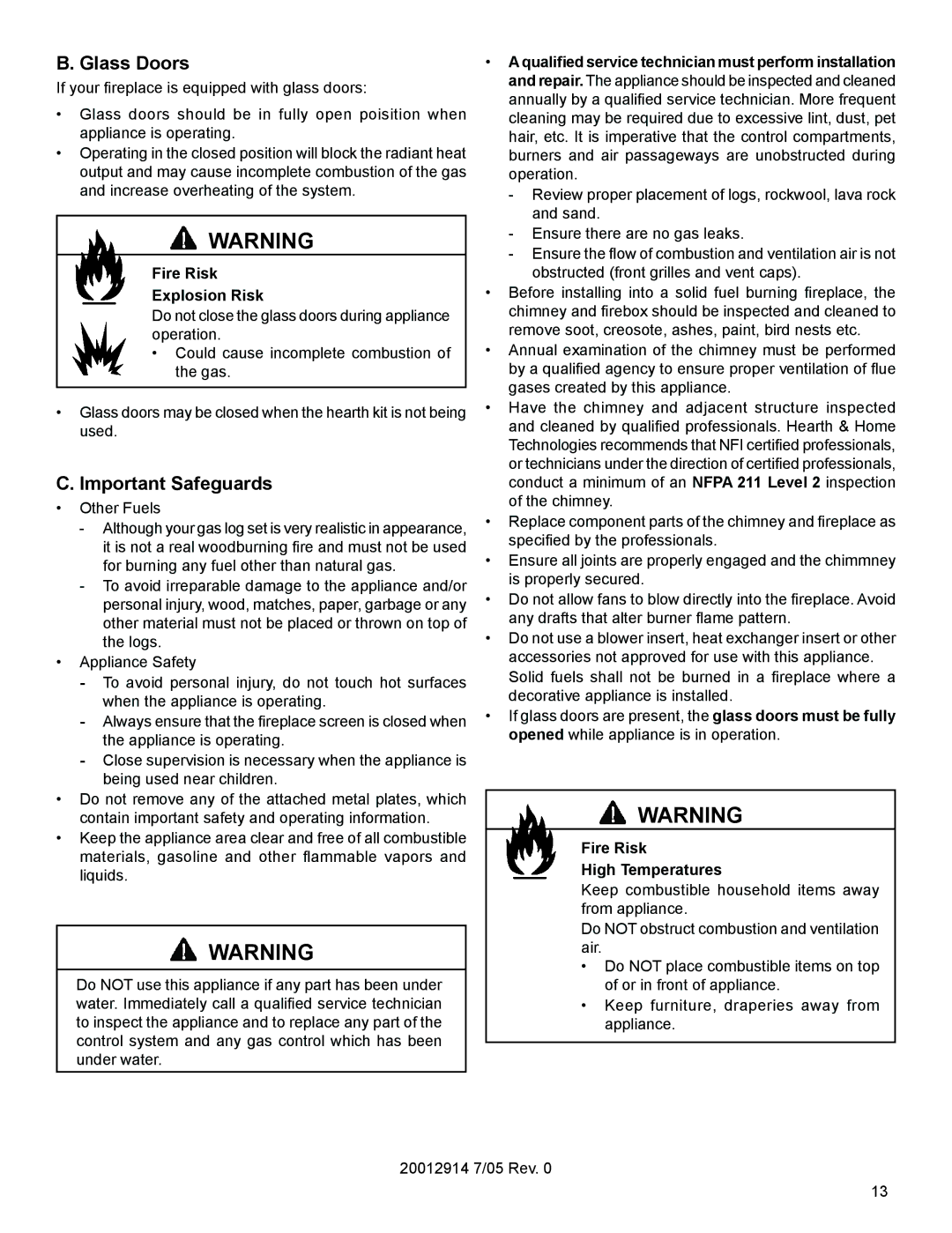MO18 specifications
The Vermont Casting MO18 is a prominent addition to the world of high-efficiency wood stoves, designed for those who appreciate both style and functionality. With its elegant design, the MO18 combines traditional aesthetics with modern innovation, making it a perfect centerpiece for any living space.One of the standout features of the MO18 is its exceptional heating capacity. Rated for medium to large spaces, this wood stove can effortlessly heat areas of up to 1,600 square feet, ensuring that homes remain warm and cozy even during the coldest months. The efficient heat output is complemented by an impressive burn time, which means users can enjoy a prolonged warm atmosphere without the need for constant refueling.
The MO18 employs advanced combustion technology, which significantly enhances its efficiency. With a clean-burning system, it minimizes emissions, contributing to a more environmentally-friendly heating solution. This not only meets but often exceeds stringent EPA standards, making it a responsible choice for the eco-conscious consumer.
Safety features are paramount in the design of the MO18. It includes an integrated air wash system that keeps the glass door clean, providing an unobstructed view of the mesmerizing flames while ensuring that the fire operates at optimal efficiency. The stove is also equipped with a heat shield, protecting nearby surfaces and enhancing overall safety.
In terms of construction, the MO18 is built to last, featuring cast iron construction that provides durability and excellent heat retention. This material is not only resilient but also adds to the timeless charm of the stove, giving it an appealing rustic appearance. Additionally, the MO18 is available in a variety of finishes, allowing homeowners to select a look that complements their unique style.
For ultimate convenience, the Vermont Casting MO18 includes a powerful blower that helps circulate warm air throughout the room, enhancing comfort while maximizing heat distribution. This feature is particularly valuable in larger spaces, ensuring that every corner benefits from the cozy warmth generated by the stove.
In summary, the Vermont Casting MO18 wood stove stands out for its remarkable heating efficiency, environmental responsibility, and durable construction. With its blend of traditional design and modern technology, it not only serves as a reliable heating source but also as an aesthetic addition to any home. Whether you’re gathering with family on a chilly evening or enjoying a quiet moment by the fire, the MO18 promises to deliver warmth and comfort in style.

